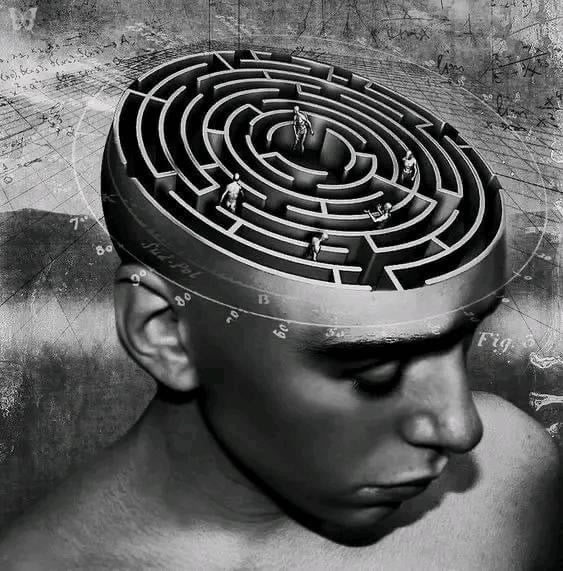The human mind is often likened to a labyrinth, a complex maze filled with twists and turns, barriers and pathways. This imagery beautifully represents our emotional lives and inner conflicts. The concept of a maze resonates deeply within the realm of psychodynamic psychotherapy. This approach emphasises exploring the unconscious mind, the intricacies of human relationships, and the formative experiences that shape our current behaviours and feelings.
The Maze Metaphor
Imagine a person standing at the entrance of a maze, hesitant and unsure of which path to take. This visual metaphor illustrates the challenges individuals face as they navigate their thoughts, emotions, and relationships. In psychotherapy, clients often find themselves in similar situations—lost within their mental labyrinth, searching for clarity and direction. The maze represents the complexity of our psychological experiences, where feelings of anxiety, confusion, and uncertainty can lead to isolation.
Unpacking the Maze
In psychodynamic therapy, the goal is to illuminate the hidden corners of the maze. Here, we explore significant life experiences, unresolved conflicts, and emotional patterns that shape our current realities. By examining past relationships, childhood experiences, and the ways we relate to ourselves and others, we can begin to make sense of the paths we have taken.
1. Understanding Inner Conflicts
One of the primary objectives in psychodynamic psychotherapy is to identify and understand the inner conflicts that contribute to feelings of being “lost.” These conflicts often stem from repressed emotions, unmet needs, or unresolved traumas. A composite clinical example illustrates this beautifully:
Case Example: Navigating the Maze of Relationships
Client: “I feel like I’m always stuck in the same pattern. Every time I start to get close to someone, I push them away. I don’t want to feel vulnerable.”
Therapist: “It sounds like there’s a part of you that craves connection but another part that feels afraid. Can we explore where that fear might come from?”
Client: “I think it’s because my father left when I was a child. I’ve never really trusted anyone since then.”
Therapist: “That makes sense. Your experience with your father might have created a maze of feelings around trust and vulnerability. Let’s examine how that’s impacting your current relationships.”
In this dialogue, we see how the client’s past experiences with abandonment create a complex inner maze of fears and defences. By exploring these feelings, the client can begin to navigate the paths that lead to deeper connections rather than pushing loved ones away.
2. Exploring Relationships
The maze metaphor also extends to our relationships with others. Just as we navigate the twists and turns of a physical maze, we often face challenges in our interpersonal connections. Psychodynamic therapy encourages clients to examine their relational patterns—how they interact with loved ones, colleagues, and friends. Often, unresolved issues from the past resurface in present relationships, influencing our ability to connect authentically with others.
For example, a client may find that they repeatedly choose partners who are emotionally unavailable. This pattern can stem from childhood experiences of neglect or loss, which creates a subconscious expectation of disappointment in relationships. In therapy, we work together to uncover these patterns, helping the client to understand how their past is influencing their present. By doing so, they can begin to change these cycles and foster healthier connections.
3. Finding Meaning and Resolution
As clients progress through therapy, they begin to uncover insights that help them make sense of their experiences. This process can be transformative, allowing individuals to find meaning in their struggles and learn how to navigate their emotional landscapes more effectively. Just as a maze has an exit, clients can discover pathways that lead them toward greater self-awareness, healing, and resolution.
For instance, a client who struggles with chronic anxiety may find that their fears are rooted in early experiences of instability or unpredictability in their environment. By exploring these connections, they can start to understand their anxiety’s origins and develop healthier coping mechanisms. Therapy becomes a journey of exploration, where clients can confront their fears and discover new ways of being in the world.
The Importance of a Safe Space
Creating a safe space is crucial for effective therapy. In my practice, I strive to establish an environment where clients feel comfortable expressing their thoughts and feelings without fear of judgment. This trust allows clients to delve into their inner mazes with confidence. It is essential to feel secure when exploring the deeper, sometimes painful aspects of our psyche.
The Maze of the Mind: An Image of Complexity
To further illustrate the intricacies of the mind, consider the image of a maze nestled within a human head. This powerful visual representation captures the essence of the emotional struggles we often face. The maze signifies the complexity of our thoughts and feelings, while the figures within it symbolize the challenges we encounter. Each path taken within the maze reflects our attempts to navigate our mental landscapes.
This imagery invites us to contemplate our journeys. It reminds us that while the maze may be daunting, there are paths that can lead to clarity and understanding.
Conclusion
The journey through the maze of the mind is not always easy, but it can lead to profound personal growth and understanding. In psychodynamic psychotherapy, we embrace the complexity of our emotional lives, offering a safe space to explore the intricate patterns that shape our thoughts, feelings, and relationships. By navigating this internal maze together, clients can emerge with greater clarity, insight, and a renewed sense of direction.
If you find yourself feeling lost in your own maze, consider reaching out for support. I invite you to discuss your concerns and explore whether psychodynamic therapy might be a good fit for you. Together, we can navigate the pathways of your mind and work towards finding your way.
You do not have to face this journey alone. Contact me today to begin your exploration.
By Ari Sotiriou M.A. psychodynamic psychotherapist asotiriou@online-therapy-clinic.com

